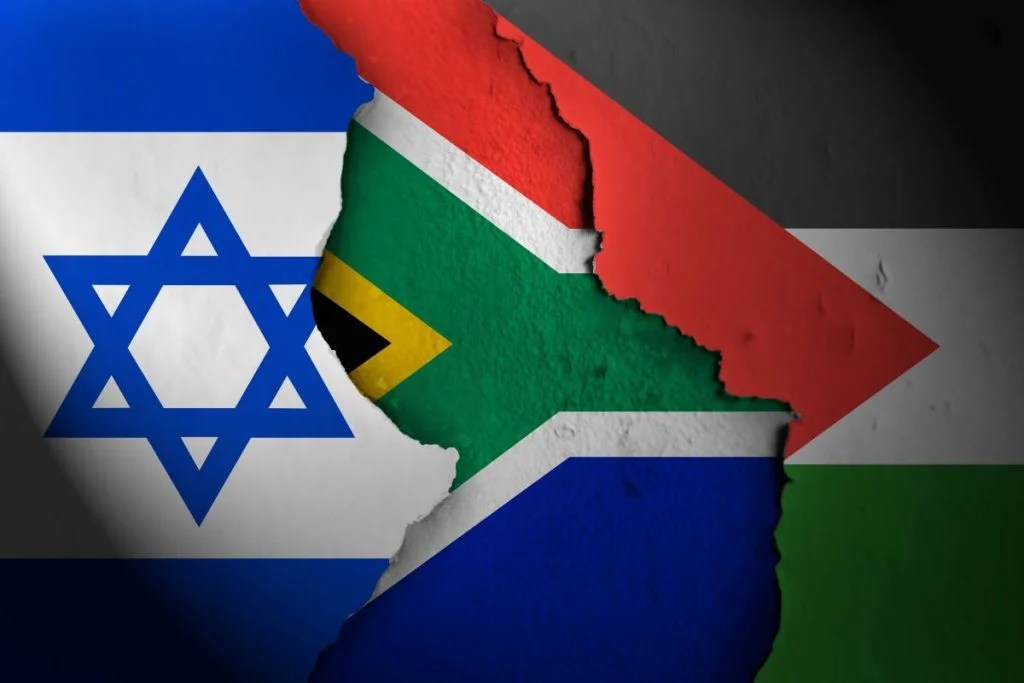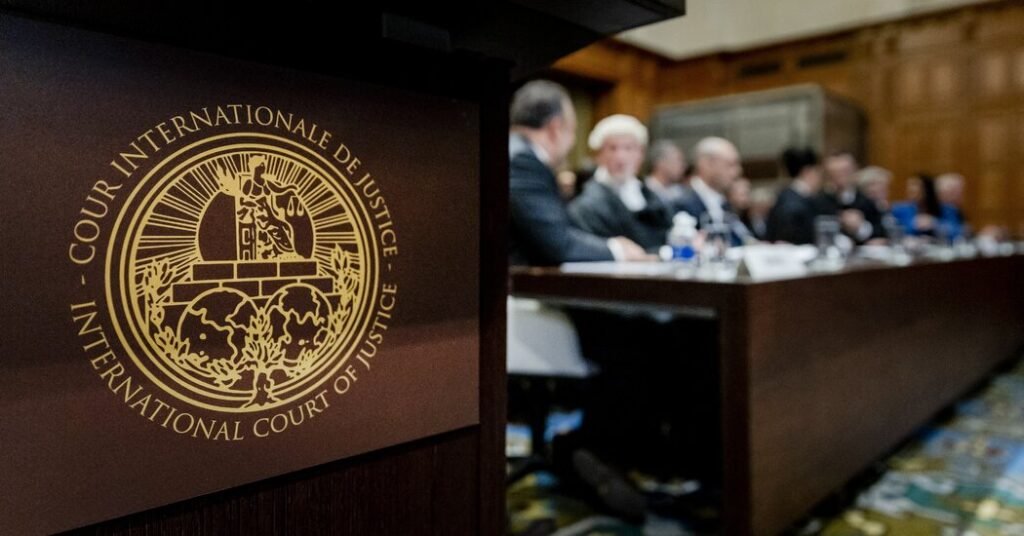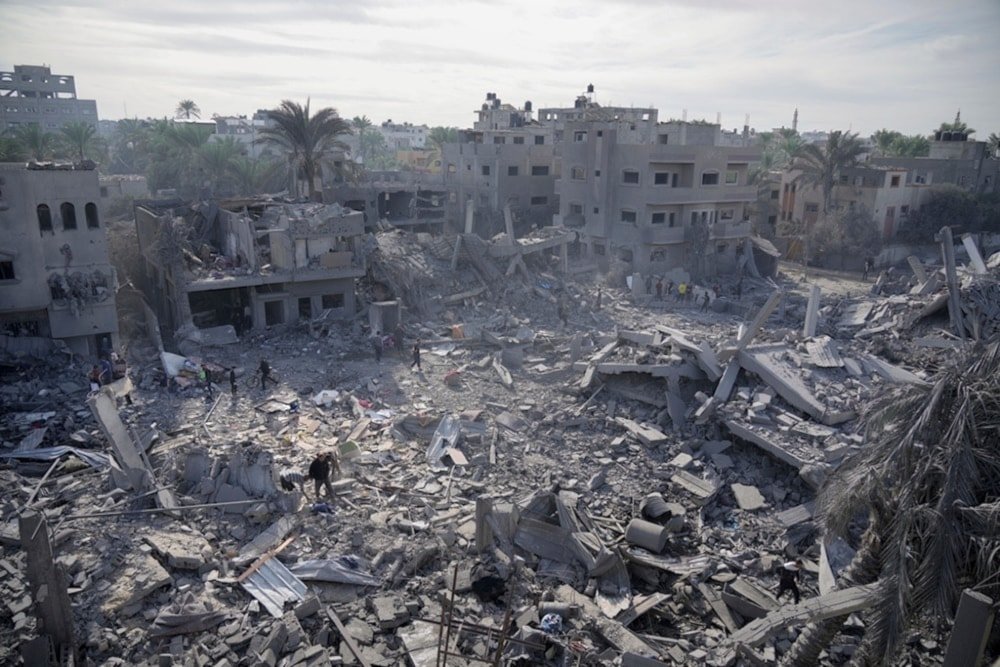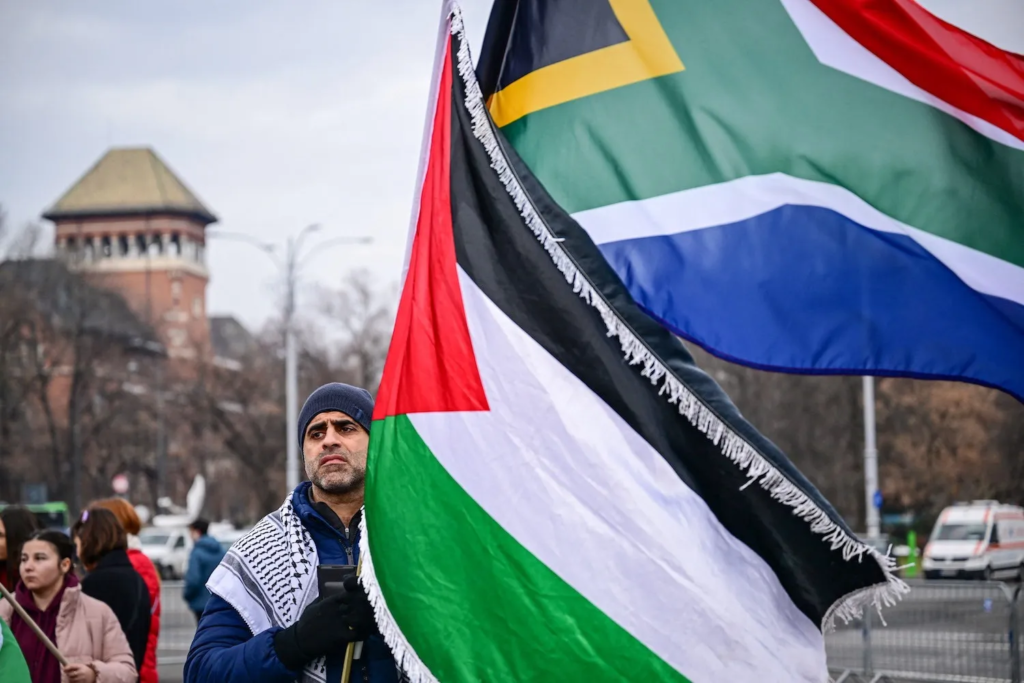Today, the International Court of Justice (ICJ) delivered a significant ruling, stating by a large majority that there is a “plausible case” that Israel may be committing genocidal acts in Gaza. This outcome challenges Israel’s narrative of defending democracy against Hamas, putting its actions under intense international scrutiny and creating discomfort for its Western allies. However, the measures ordered are minimal—amounting to a symbolic reminder rather than direct intervention—leaving Israel’s military campaign largely unchecked.
Notably, the Court did not call for an immediate halt to Israel’s operations in Gaza, a central request by South Africa. Instead, it mandated that Israel “take all measures within its power” to prevent genocidal acts, allow humanitarian aid, and prevent the destruction of evidence regarding alleged genocide. Israel has been given one month to report back on its actions. This decision reflects the ICJ’s balancing act: unwilling to fully disregard the mounting claims of genocide, but also reluctant to demand measures that could reveal the limits of its authority should Israel defy the order.
Israel’s response to the ruling has been dismissive, with National Security Minister Itamar Ben-Gvir reacting dismissively on social media. This underscores the underlying challenge of seeking justice through international courts: a symbolic gesture without substantial enforcement is unlikely to compel change. As Palestinian advocates have long emphasized, true justice for Gaza lies not in court orders but in widespread resistance, supported by global solidarity.
South Africa’s Landmark Case and Its Global Impact
The case brought by South Africa has gained widespread attention, representing a formal challenge against Israel at the highest international level. For millions around the world hoping for an end to the suffering in Gaza, this case has become a beacon of hope. It also signals a confrontation with the entire framework of international law, which, despite its ideals, appears powerless to stop atrocities.
Unlike the International Criminal Court, which tries individuals, the ICJ’s role is to address disputes between states, and its rulings are binding. However, the ICJ lacks enforcement powers, relying on the goodwill and political will of member states. South Africa’s December 28 submission argues that Israel has violated the Genocide Convention, a treaty born from the aftermath of the Holocaust in 1948.
The hearing last week did not address whether genocide has indeed been committed. Rather, the court was asked to establish “provisional measures” to prevent further harm to Palestinians in Gaza while awaiting a full trial—a process that could take years. This delay only underscores the gravity of the situation, with civilian suffering escalating daily.
The case has deepened international divides, with Western powers like the U.S., UK, and Germany publicly siding with Israel. Germany’s participation in the case as a “third party,” arguing its moral authority due to its own historical record, was met with sharp criticism, particularly from Namibia, where Germany’s colonial-era genocide still leaves scars.

The case has deepened international divides, with Western powers like the U.S., UK, and Germany publicly siding with Israel. Germany’s participation in the case as a “third party,” arguing its moral authority due to its own historical record, was met with sharp criticism, particularly from Namibia, where Germany’s colonial-era genocide still leaves scars.
International Hypocrisy and Public Reaction
The ICJ case has exposed rifts between Western powers and the rest of the world, with many countries from the Global South supporting South Africa’s stance. Notably, the U.S. and other Western allies of Israel have rebuffed South Africa’s accusations, framing the case as unfounded. Meanwhile, mainstream Western media largely ignored South Africa’s submissions, giving airtime instead to Israel’s rebuttal.
For many countries that once suffered under colonial rule, this case represents a broader indictment of Western imperialism and the perceived double standards of international law. On one hand, these countries champion human rights when addressing conflicts involving certain nations, yet support Israel’s extensive campaign in Gaza. This selective support only highlights the hypocrisy of the so-called “rules-based order” that Western nations advocate.

The courtroom filled with international representatives, activists, and thousands of protestors rallying outside. Supporters of the Palestinian cause have faced accusations of antisemitism and harassment, making this case a rare instance of public validation for their stance. For Palestinians and their advocates, the case provides a chance to hold Israel accountable and to refute the claim that supporting Palestinian rights equates to endorsing terrorism.
The Charges of Genocide and Israel’s Defense
South Africa’s case rests on three points. First, it contends that Israel’s actions in Gaza constitute acts prohibited under the Genocide Convention, including mass killing, infliction of harm, and measures intended to lead to the physical destruction of a group. Evidence of a “living hell” in Gaza was presented, describing one of the heaviest conventional bombing campaigns in recent history, with thousands of civilians dead, 70 percent of whom are women and children.
Gaza’s destruction goes beyond bombings. Israel has restricted entry of medical, food, and water supplies, crippled infrastructure, and blocked essential services, making daily life nearly impossible. Health services, already severely damaged, are unable to meet the needs of those maimed or injured by bombings. Diarrhea cases among young children have surged by 2,000 percent due to malnutrition and lack of sanitation, creating a deadly cycle of disease and starvation.
To substantiate a charge of genocide, however, South Africa must prove Israel’s intent to destroy a specific ethnic or national group. It presented evidence suggesting an intentional campaign to target Palestinians, including inflammatory remarks by Israeli leaders comparing Gaza’s population to “enemies,” as well as targeting civilians in “safe zones” Israel itself had designated.

Israel’s response the following day emphasized its right to self-defense. It portrayed Hamas as the aggressor, placing responsibility for the conflict on Palestinian actions. Israel’s defense did not deny the widespread civilian impact but instead justified it as a consequence of Hamas’ use of human shields. This framing, however, raised further concerns, as it implicitly legitimized the targeting of civilian infrastructure as necessary for national security.
The ICJ is now left with a decision that could fundamentally shape its authority and influence. Dismissing the case risks diminishing the court’s standing, while acknowledging the provisional measures risks backlash from Israel and its allies. Regardless of the outcome, the case has brought to light the limitations of international law in holding powerful states accountable and has galvanized international opinion in favor of Palestinian rights.

This ruling highlights the constraints of international law. The ICJ’s authority relies on voluntary compliance, and any measures ordered against Israel would depend on enforcement by the UN Security Council, where the U.S. and UK hold veto power. Without enforcement, even a partial ruling against Israel would remain largely symbolic, leaving Palestinian suffering unmitigated.
In the words of South African advocate Adila Hassim, “Nothing will end this suffering without international action.” Yet the reality remains that without systemic change, such cases are unlikely to secure justice. Only sustained global solidarity and a fundamental shift in how international law addresses power imbalances can hope to provide real support to those fighting for justice in Gaza.
As the ICJ deliberates, the people of Gaza continue to endure unimaginable hardship. The outcome of this case may offer symbolic validation, but real change hinges on global solidarity and sustained action, unbound by the limitations of international legal bodies.

